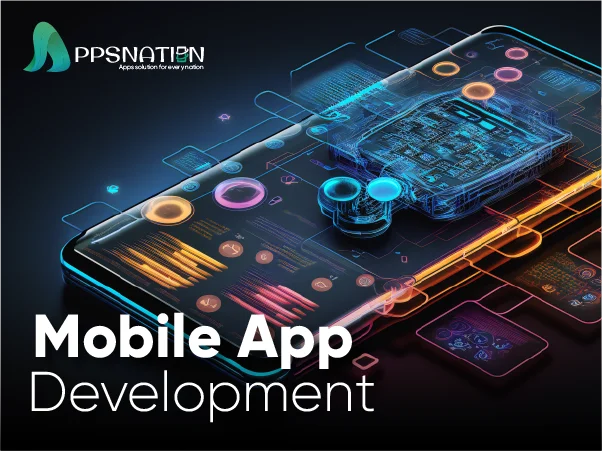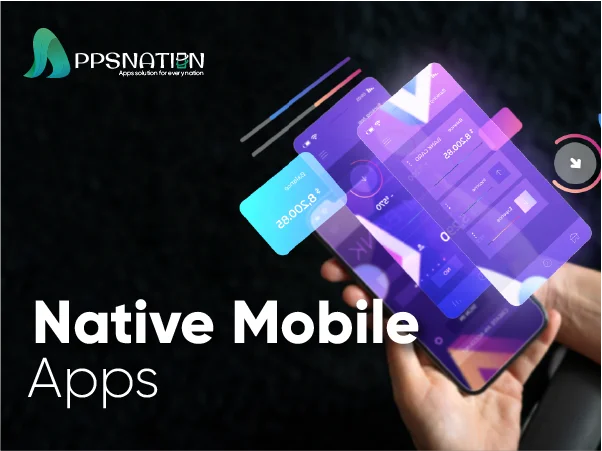In the modern era of technology, mobile applications have seamlessly integrated into our daily lives from social media platforms to productivity tools, mobile apps cater to various needs and provide convenience at our fingertips. However, the journey from an idea to a successful mobile app launch involves a well-defined development lifecycle. In this article, we will explore the stages involved in the mobile app development process, from inception to deployment.
Table of Contents
| 1 | Introduction: Understanding the Importance of a Well-Structured Mobile App Development Lifecycle |
| 2 | Ideation: Transforming Ideas into Actionable Concepts |
| 3 | Market Research: Identifying User Needs and Analysing the Competition |
| 4 | Wireframing and Design: Crafting the User Experience |
| 5 | Development: Transforming Designs into Functional Code |
| 6 | Testing and Quality Assurance: Ensuring a Flawless User Experience |
| 7 | Deployment: Making the App Available to the Public |
| 8 | Post-Launch Maintenance and Updates: Enhancing User Satisfaction |
| 9 | Conclusion |
| 10 | FAQs |
Introduction: Understanding the Importance of a Well-Structured Mobile App Development Lifecycle
Mobile app development is a complex process that requires careful planning and execution. A well-structured development lifecycle ensures that the final product meets the expectations of the target audience while adhering to predefined timelines and budgets. It encompasses various stages, each playing a crucial role in the success of the app. Let’s explore these stages in depth.
Ideation: Transforming Ideas into Actionable Concepts
The ideation phase is where innovative ideas are conceptualised and transformed into actionable concepts. It involves brainstorming sessions, market analysis, and identifying user pain points that the app intends to solve. During this stage, it is important to define the app’s goals, target audience, and unique selling proposition (USP). Conducting thorough research and gathering valuable insights will help shape the direction of the app development process.
Market Research: Identifying User Needs and Analysing the Competition
Market research is a crucial step in understanding user needs and preferences. By analysing the target market and studying competitor apps, developers can identify gaps and opportunities for differentiation. It is essential to gather feedback from potential users through surveys, interviews, or focus groups. This data will aid in making informed decisions about the features, design, and overall user experience of the app.
Wireframing and Design: Crafting the User Experience
Wireframing and design lay the foundation for a seamless and intuitive user experience. During this stage, developers create low-fidelity and high-fidelity wireframes to visualise the app’s structure and flow. User interface (UI) and user experience (UX) designers work closely to design visually appealing interfaces that align with the app’s branding and enhance user engagement. Iterative design processes and user testing ensure that the final design meets user expectations.
Development: Transforming Designs into Functional Code
Once the design is finalised, developers begin transforming the visual elements into functional code. They choose a suitable technology stack and programming languages based on the app’s requirements. Collaborative development methodologies, such as Agile or Scrum, are often employed to ensure efficient collaboration and continuous progress. Developers write clean and modular code, adhering to coding standards and best practices. Regular code reviews and version control systems help maintain code quality and facilitate team collaboration.
Testing and Quality Assurance: Ensuring a Flawless User Experience
Testing and quality assurance play a vital role in delivering a bug-free and high-performing app. Quality assurance teams perform various types of testing, including functional testing, usability testing, performance testing, and security testing. Automated testing tools and manual testing techniques are employed to identify and fix any issues or bugs. This iterative process ensures that the app functions as intended across different devices and operating systems, providing a seamless user experience.
Deployment: Making the App Available to the Public
With the development and testing phases complete, it’s time to deploy the app and make it available to the public. The deployment process involves publishing the app on relevant app stores, such as the Apple App Store and Google Play Store. Developers must comply with the guidelines and requirements of each platform to ensure successful submission. They also need to optimise the app’s metadata, such as descriptions, keywords, and screenshots, to enhance discoverability and attract potential users.
Post-Launch Maintenance and Updates: Enhancing User Satisfaction
Launching the app is just the beginning of its lifecycle. Post-launch maintenance and updates are essential to keep the app running smoothly and continuously improve user satisfaction. Developers monitor user feedback, track app performance metrics, and address any reported issues promptly. Regular updates introduce new features, enhance security, and provide bug fixes. By staying responsive to user needs, developers can build a loyal user base and encourage positive app reviews.
Conclusion
The mobile app development lifecycle encompasses multiple stages, each contributing to the creation of a successful and user-friendly application. From ideation to deployment and beyond, it is crucial to follow a well-defined process that incorporates market research, design, development, testing, and post-launch maintenance. By understanding and implementing each stage effectively, developers can create mobile apps that meet user expectations, provide value, and achieve business objectives.
FAQ
Q: How long does the mobile app development lifecycle take?
The duration of the mobile app development lifecycle can vary depending on various factors, including the complexity of the app, the size of the development team, and the availability of resources. On average, it can take several months to a year to complete the entire lifecycle.
Q. Do I need technical skills to develop a mobile app?
While having technical skills can be beneficial, it is not always necessary to have programming knowledge to develop a mobile app. You can hire a professional development team or use low-code or no-code app development platforms that require minimal coding.
Q: How important is user feedback in the development process?
User feedback is critical in the mobile app development process. It provides insights into user preferences, identifies areas for improvement, and helps developers enhance the app’s usability and functionality. Incorporating user feedback can significantly contribute to the success of the app.
Q: Can I update my app after it is launched?
Yes, it is essential to regularly update your app even after its launch. Updates can include bug fixes, performance improvements, feature enhancements, and compatibility updates to ensure the app remains functional and relevant in the ever-evolving mobile landscape.
Q: What platforms can I deploy my mobile app on?
The choice of platforms depends on your target audience and app requirements. The two major platforms for mobile app deployment are iOS (Apple App Store) and Android (Google Play Store). You can develop and deploy your app on one or both platforms based on your target market and user preferences.




